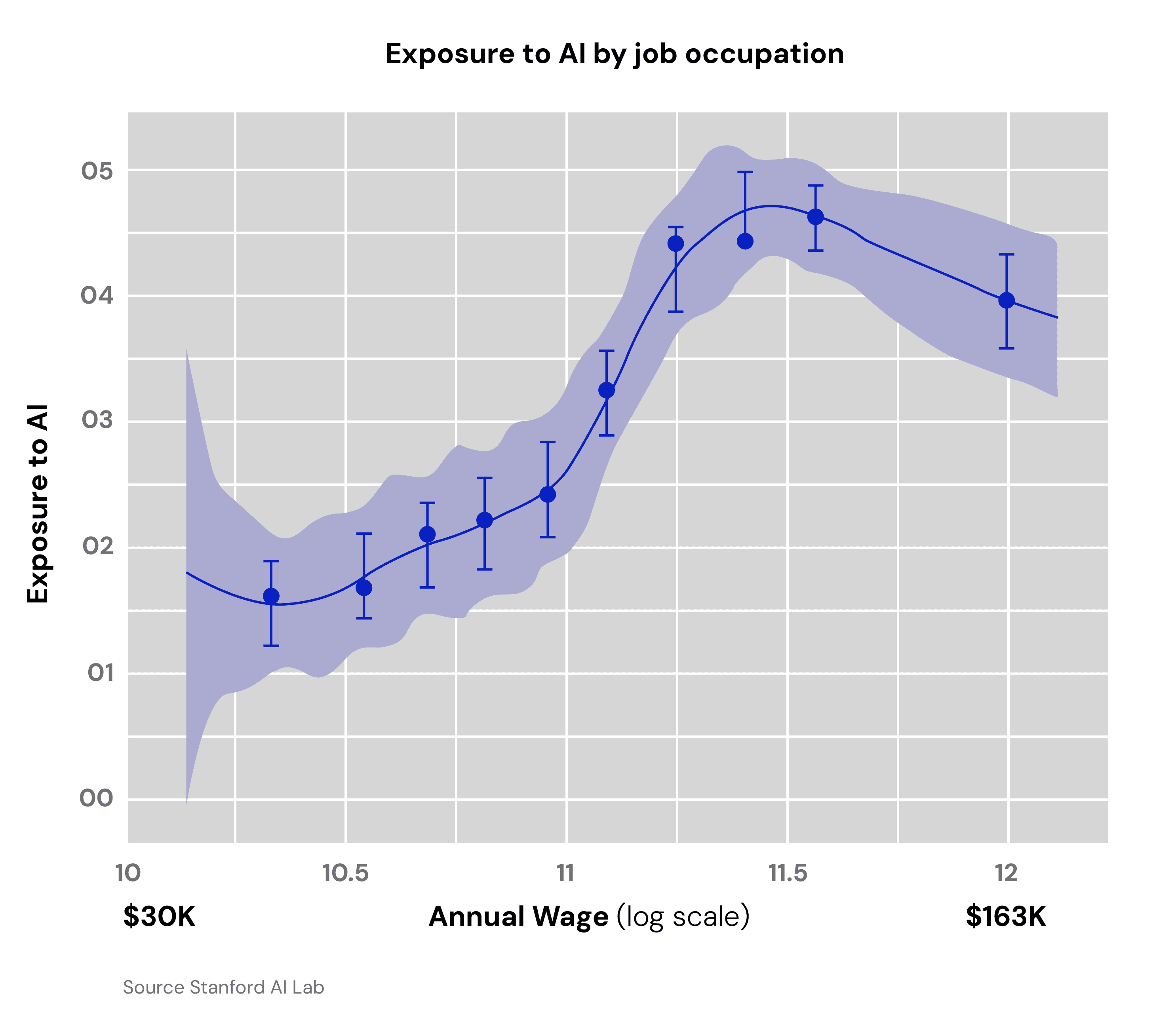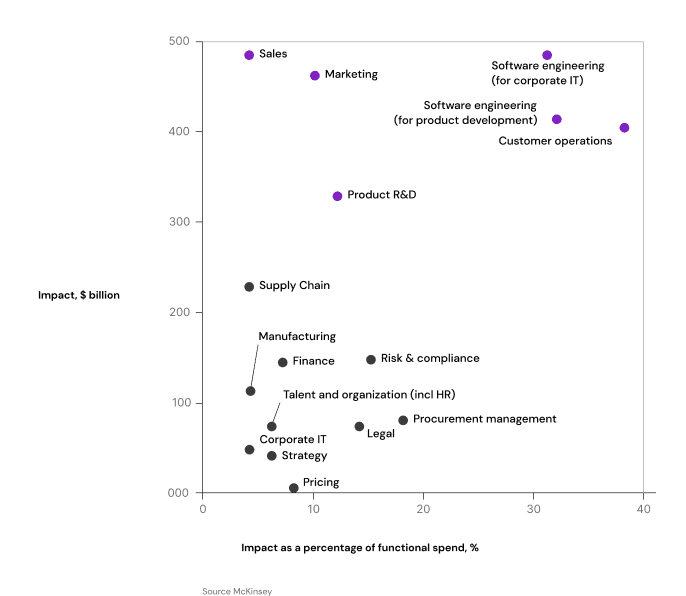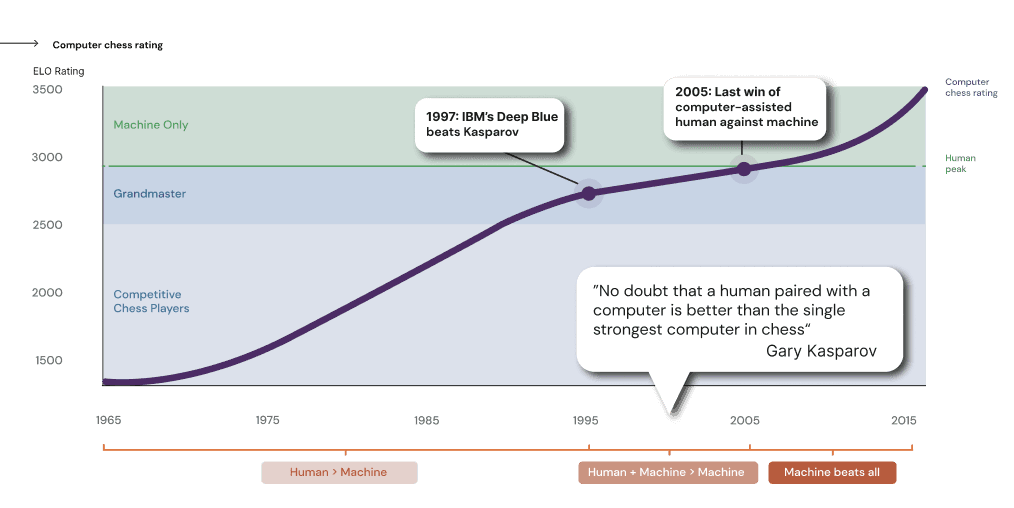The incentive to automate provided by AI will impact all levels of employment and qualifications, but even more strongly on intellectual professions.
White-collar workers are affected before blue-collar workers.
The opportunity is even greater in industrialized countries.
Mechanically, the automation of high value-added tasks by AI will be faster in countries with the highest salaries.
AI replaces tasks, not jobs, but it’s a classic process of destructive creation.





